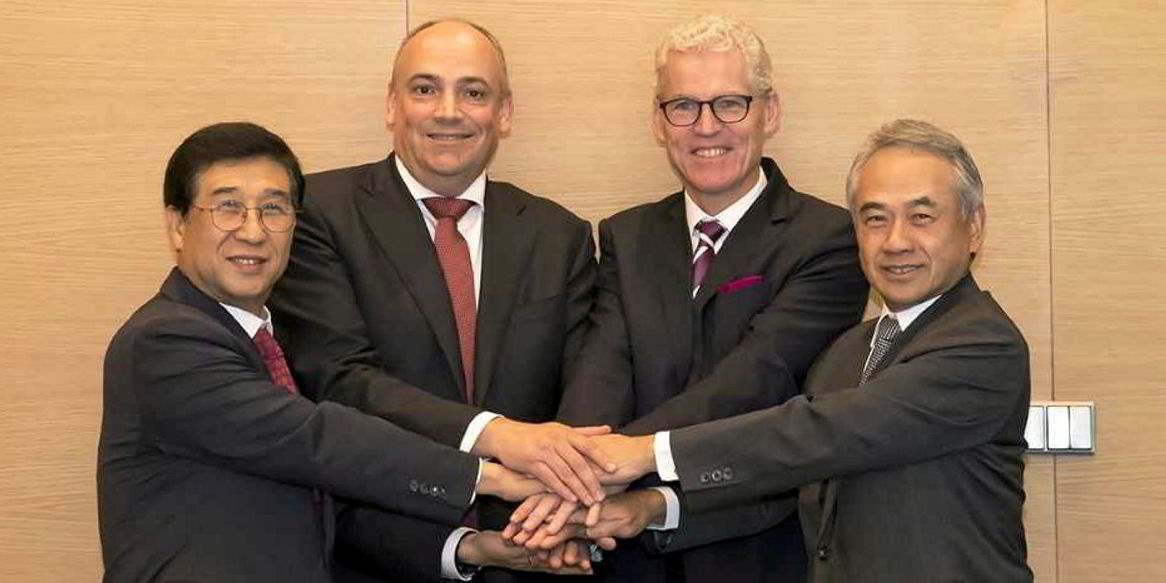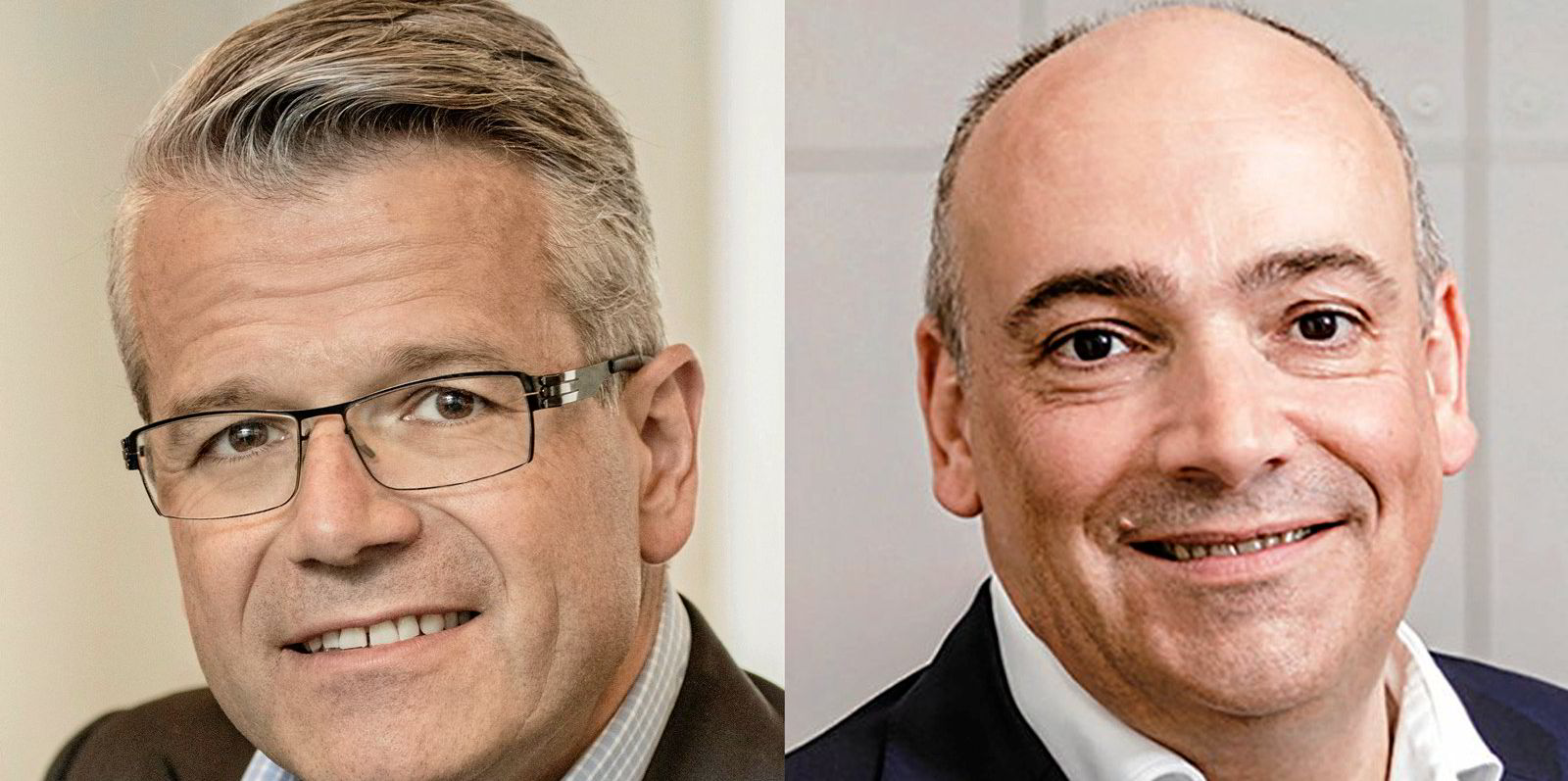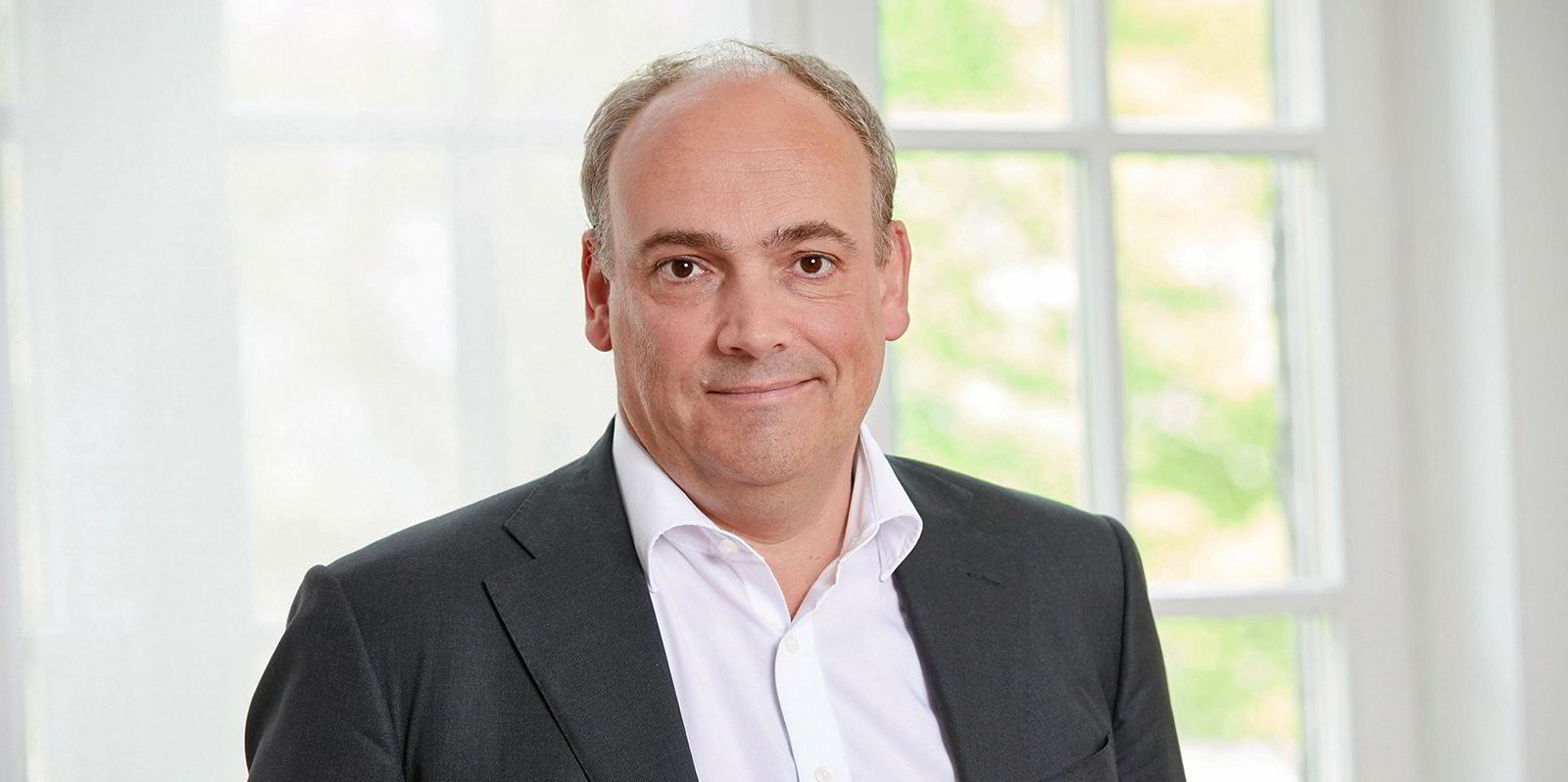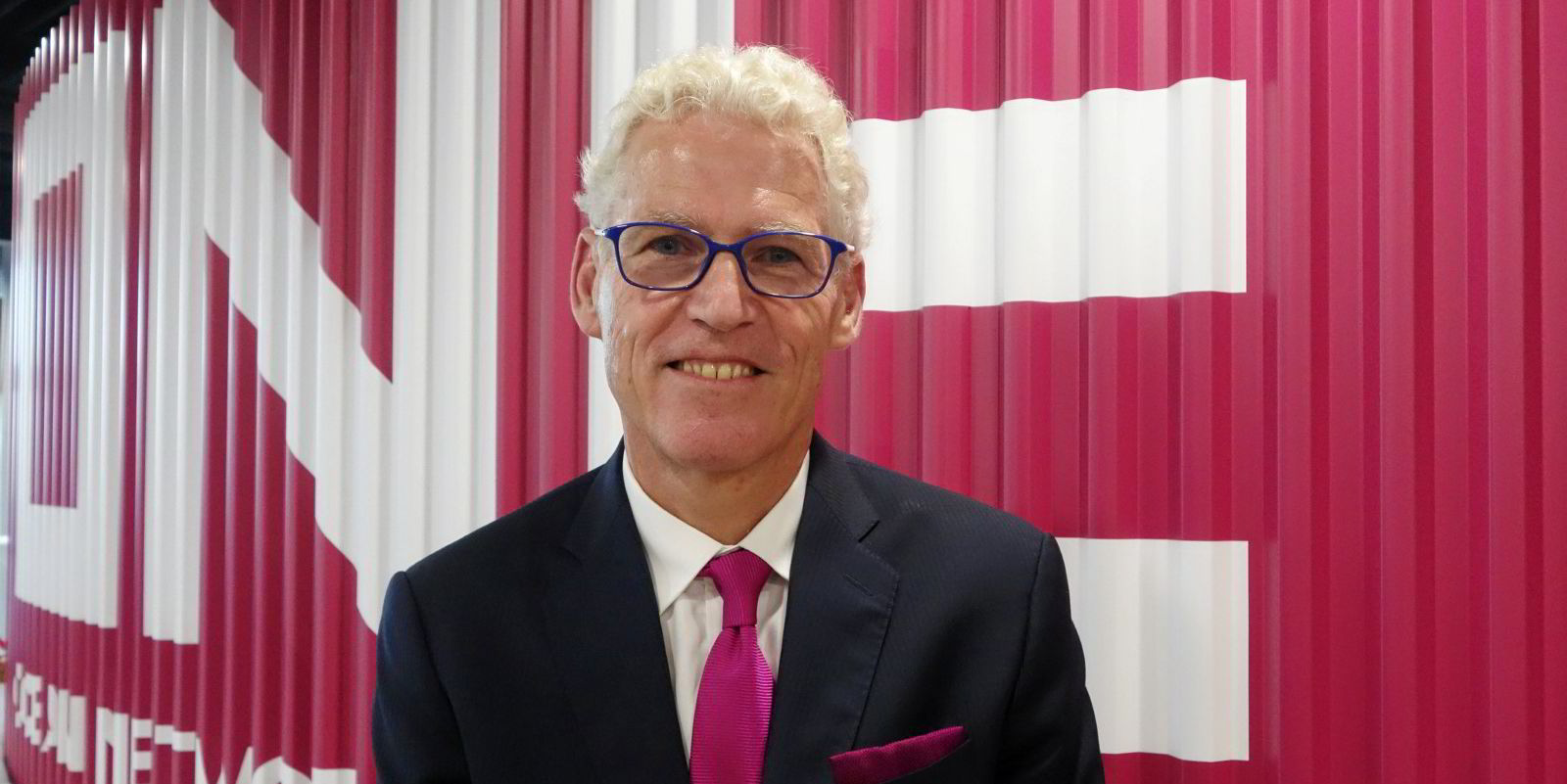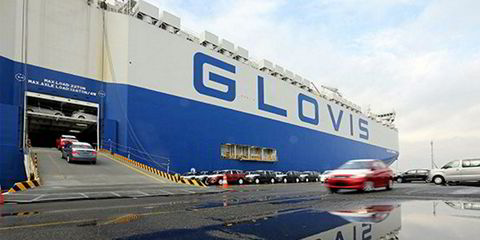Hapag-Lloyd chief executive Rolf Habben Jansen is not worried about going from largest partner in one alliance to the smallest in another.
His comments came after the German liner operator revealed plans to form an operational agreement with Danish carrier AP Moller-Maersk called the Gemini Cooperation.
“We have made an agreement where both partners have equal rights. I think that’s very important,” he said in a press conference.
The decision means Hapag-Lloyd will pull out of THE Alliance, the global partnership of four liner companies, in which the German carrier has been a founding member for eight years.
“We believe that with two partners, it’s easier to take decisions than with four,” he added.
“And we should also not forget that we’re when we look at THE Alliance we provided, I believe about 25% of the capacity here we provide about 40% of the capacity.”
“So we think that we’re structurally better positioned in this future cooperation than we are today.”
Wake-up call
Habben Jansen said that THE Alliance members Ocean Network Express, Yang Ming Marine Transport and HMM were informed of the decision this morning.
Their reaction to the news that Hapag-Lloyd would not be a member from February 2025 “was highly professional in all cases”, he said.
Until Wednesday’s announcement, it was anticipated that the German carrier would remain a member of THE Alliance for another six years.
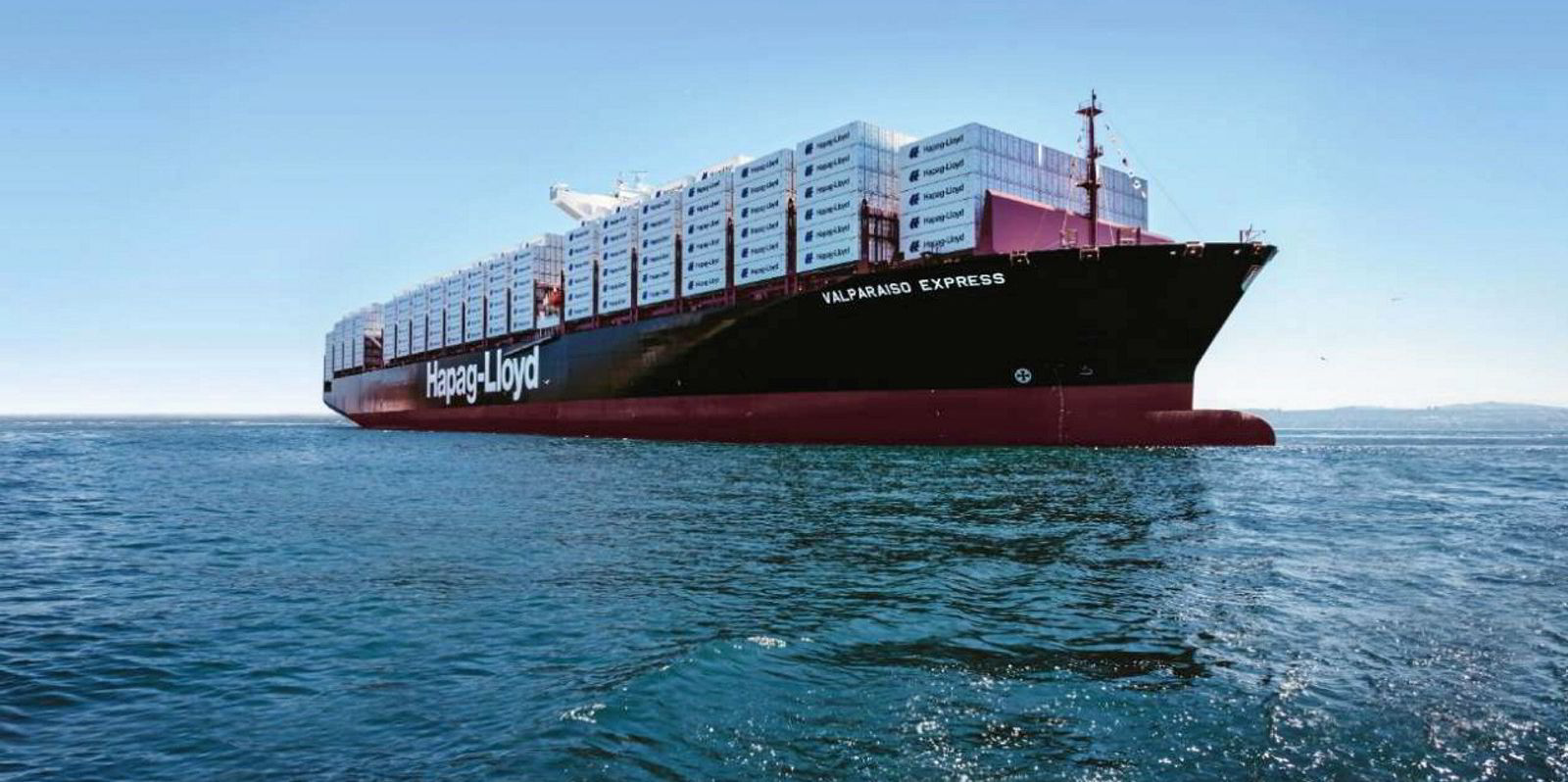
“There was an intention to stay together until 2030, but there has always been a possibility to leave with 12 month’s notice after [an] initial binding period of three years,” said Habben Jansen.
He confirmed that Maersk and Hapag-Lloyd have been holding discussions for several months. Their goal was to cooperate in a structure that was more open than the traditional alliances.
“We’ve tried to create a structure between us that gives both partners flexibility to grow if and when they want it,” he said.
“I think that the spirit of the cooperation is that we should not keep each other handcuffed, but that we both should be able to execute our own strategy.
“That means if we’d like to grow a certain percentage on a certain trade our partner does not need to follow us.”
Cultural appropriation
Hapag-Lloyd and Maersk had very similar business cultures, he said.
“The alignment around quality, sustainability — that’s one big plus,” said Habben Jansen.
“The other significant plus is you will go to a cooperation where you have to deal with one partner rather than a structure which has three partners that are also geographically significantly further away.”
Hapag-Lloyd was not “super unhappy about” being a member of THE Alliance, he said.
But the carrier hoped to improve schedule reliability as a member of Gemini.
“I believe that in the new construct, we have a very different operating model and that will enable us to deliver better quality,” he said.
“That’s not because we were unhappy with our existing partners because they have been trusted partners for a long period of time.”
“It’s just that when business develops, then sometimes people make decisions to go left or right — and this is one of them,” he said.
